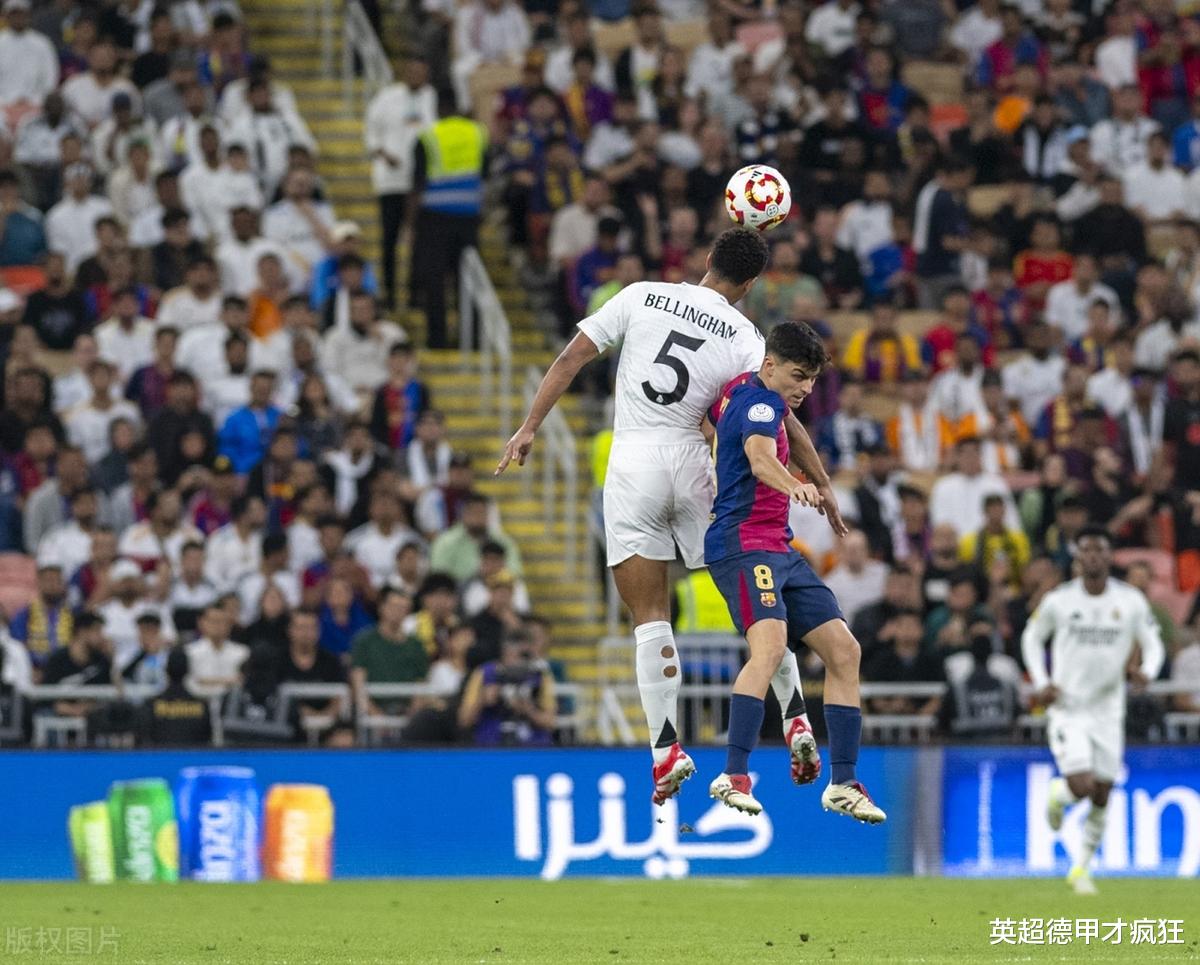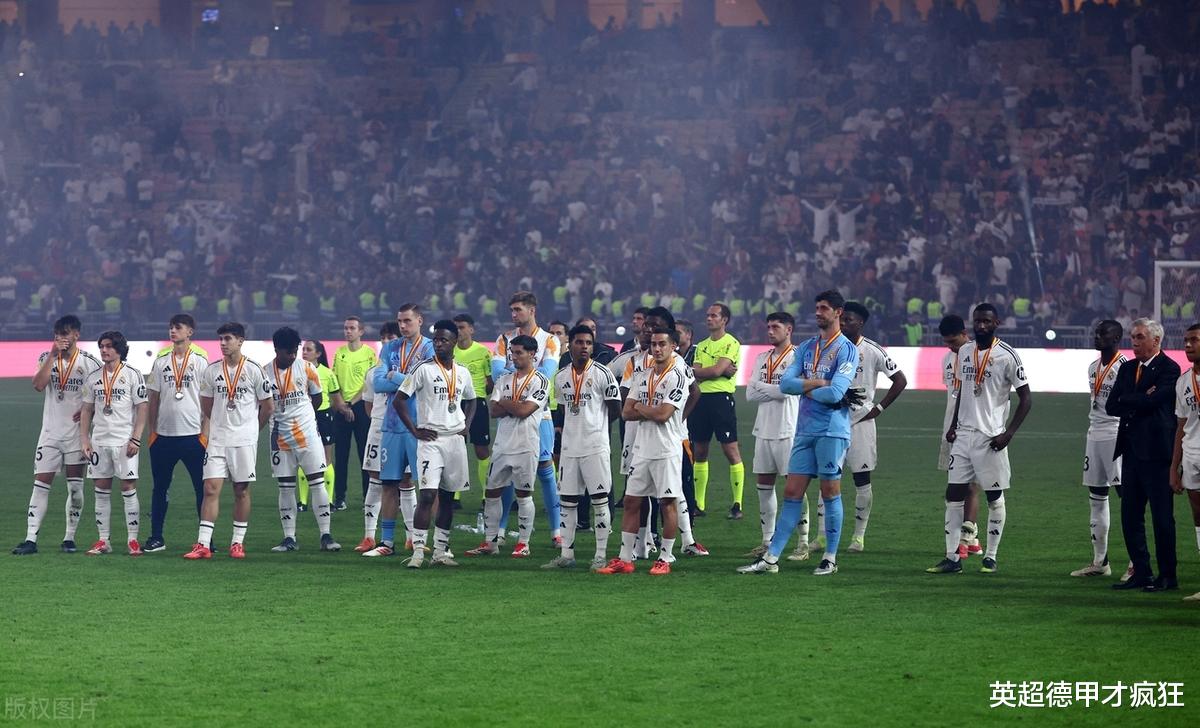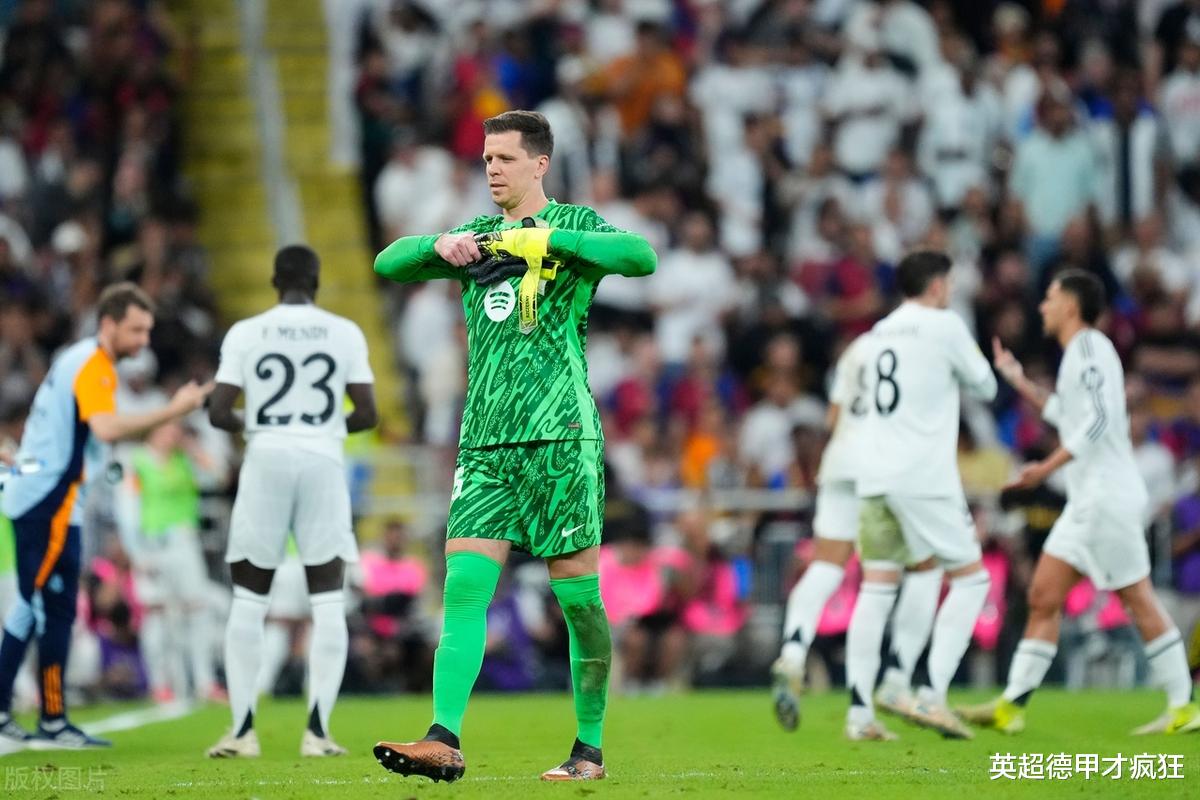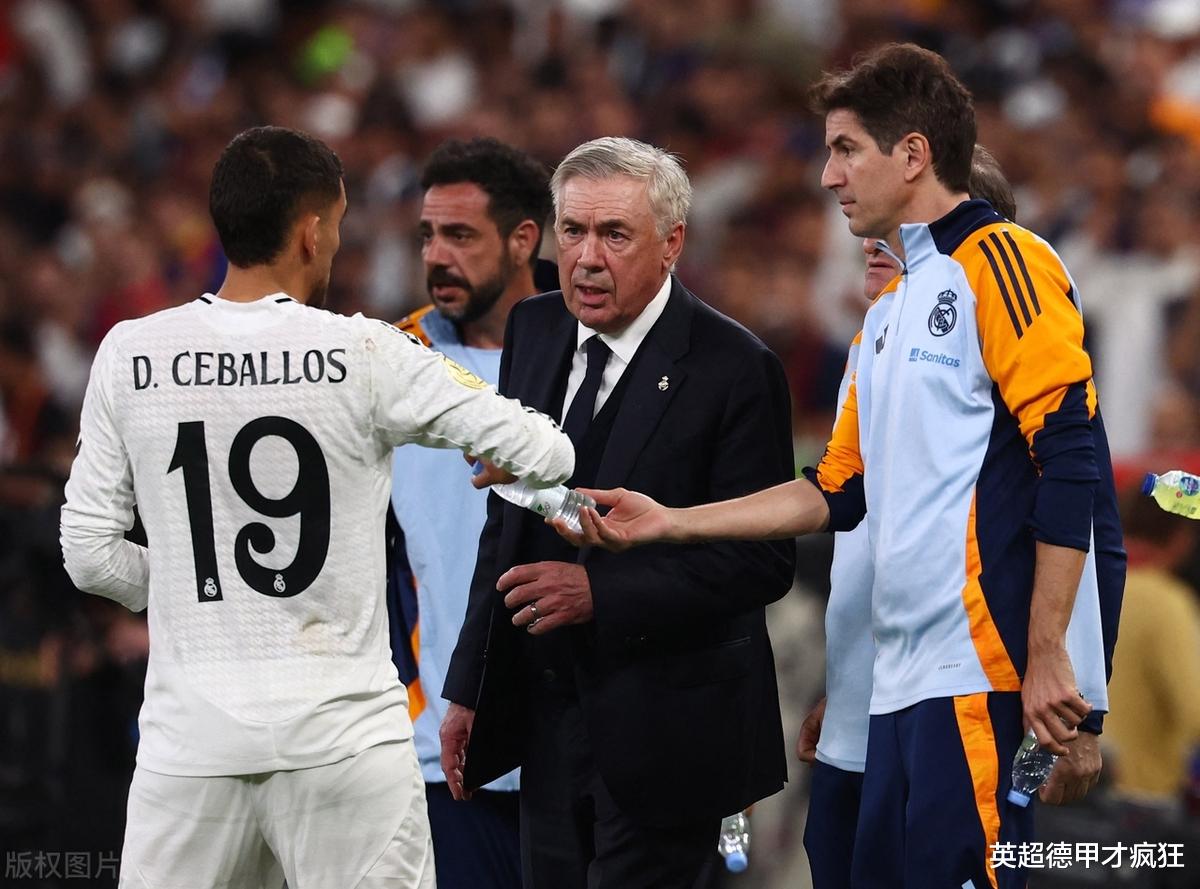Barcelona's ten-man comeback victory over Real Madrid in the Spanish Super Cup, a fusion of Spanish tiki-taka and German wingers, with Flick as the mastermind!

Half a bottle of Lafite, in the last game against Real Madrid, Barcelona sent out half a bottle of Lafite, and today they took out the remaining half bottle to entertain guests.

And it was generous, finishing it off in the first half.

After Mbappe scored the first goal, Barcelona sent out half a bottle of Lafite like a flood.

Rafinha also missed several golden opportunities.

The Barcelona team coached by Flick is fearless, a hybrid of Spanish tiki-taka and German wingers.

There are also echoes of Liverpool in the Premier League.

Real Madrid's dominance seems to have been put away, with fans describing it as Real Madrid conquering the world like a man, while Barcelona conquers Real Madrid like a woman.

A mother tiger is very fierce towards a male tiger who approaches her territory trying to court her.

The roar of the river east lion is a famous anecdote.

Su Zizhan's good friend Chen Zao was hospitable, and whenever guests visited, he would let song and dance entertainers entertain them, making it very lively. His wife Liu Shi was very jealous and powerful, and whenever Chen Zao let his concubines accompany the guests for drinks, Liu Shi would become furious with jealousy, knocking on the wall with a stick next door, and the guests would quickly leave to avoid getting caught up in the trouble.

Su Zizhan's "Letter to Wu Deren and a Brief Message to Chen Jichang" reads: "The recluse of Longqiu is also pitiful, talking about emptiness and existence without sleep at night. Suddenly hearing the roar of the lion from the east of the river, the staff fell from his hand and his heart was lost." This poem vividly portrays the flustered appearance of Chen Zao when he heard his wife scolding, which is very humorous to read.

Huang Tingjian (also known as Lu Zhi) once asked Chen Zao in a letter: "Has Lady Liu been taking medicine recently, and is she now healthy? In recent years, you have gradually sought the joy of quietness, and there have been no new concubines. What is Lady Liu worried about that has made her ill?" This means, hearing that Lady Liu has been taking medicine recently, is she now healthy? In your later years, you have gradually sought a quiet life, and have not taken any more beautiful concubines, so what is Lady Liu worried about that has made her ill?

Chen Zao's courtesy name was Jichang, and later people called men who were afraid of their wives "Jichang addiction," and used "the roar of the river east lion" to describe very fierce wives, and folk legends say that this "fierce" wife was named Liu Yue'e.

Su Zizhan loved to tease others, but he could also be playful himself, imitating his wife to write a poem to himself!

"Last year we bid farewell outside the Yuhang Gate, the flying snow resembled willow flowers. Now spring is almost over, the willow flowers resemble snow, yet you still haven't returned home.

Drinking wine, rolling up the curtain to invite the bright moon, the wind and dew permeate through the window screen. It's just like Chang'e taking pity on the pair of swallows, clearly shining on the painted beam." From "A Young Man's Tour in Runzhou, Written on Behalf of Someone Far Away."

At the end of March in the seventh year of Emperor Shenzong's reign in the Song Dynasty (1074), Su Shi, then serving as the deputy magistrate of Hangzhou, was far away in Runzhou (now Zhenjiang, Jiangsu) due to disaster relief. To express his longing for his wife Wang Runzhi, he wrote this poem. This poem imagines the situation where his wife misses him, writing a poem missing him on behalf of his wife, and also sending it to his wife!
Wang Runzhi's literary talent was far inferior to her cousin Wang Fu, and seeing this poem, she would probably be overwhelmed with joy and tears.
Barcelona still exploded against Casillas and Jovic, with Ancelotti's disappointment evident, after the previous half bottle of Lafite, he continued to finish the remaining half bottle today, stepping into the same river and finishing the same bottle of wine.
These seemingly unprofessional scenes are also something that famous coaches like Ancelotti and Guardiola can appear, their victories giving them confidence, and at the same time, they are as stubborn as cement pouring, their confidence bursting, in other words, they are too stubborn.
Everyone enters the second half of their lives like this, so there is no need to blame or denounce others.
Human nature is like this, the smoother and more successful one is when young, the more stubborn one becomes when old.
Therefore, after retirement, the best way is to often learn from your grandchildren about their toys and games, so that when marveling at how many fun games there are now, you will be very modest and cautious to worship your grandchildren as teachers, because they can easily pass the game levels, while the elderly grandparents quickly get GAME OVER at the first level.
You can complain about your poor eyesight and clumsiness compared to your grandchildren, but in reality, it is not adapting to such game rules and skills.
When you humbly seek advice from your grandchildren, they will be very willing to teach this amiable old man how to quickly master the secrets of passing the game.
Perhaps they do not yet understand the profound meaning of the idiom "the young can be taught," but they will all be willing to teach the humble and eager to learn grandfathers and grandmothers without hesitation.
In fact, being a grandfather or grandmother does not represent success or noble status in your life coordinate system, and your grandchildren will eventually become grandfathers and grandmothers to others. You have only arrived at this coordinate system earlier, there is nothing to put on airs or show off about.
Thus, Han Yu's "On Teachers" becomes the best prose for grandparents and grandchildren to recite together.
"If their ages are similar and their paths are similar, low position is enough to be ashamed, high rank is close to flattery." Disciples do not necessarily have to be inferior to their teachers, teachers do not necessarily have to be better than their disciples, the understanding of the Way comes at different times, and each specializes in different fields, that's all. Selected from Han Yu's "On Teachers."
"On Teachers" has two layers of meaning, most people only understand the first layer, to actively seek a teacher. But for the second layer "to actively be a teacher," it is not very thorough.
"On Teachers" was probably written by the author during the seventeenth to eighteenth years of the Zhenyuan period (AD 801-802), when he was serving as a four-door doctor at the National Supervisory Institute in the capital. After arriving at the National Supervisory Institute, the author found that the examination field was dark, the imperial court was corrupt, and the bureaucratic system was fraught with problems. At that time, the upper class of society looked down upon those who taught. There was a concept among the scholar-official class that they were unwilling to seek teachers and also "ashamed to be a teacher." The author wrote this article in response to Li Pan's question to clarify people's vague understanding of "seeking a teacher" and "being a teacher."
According to Fang Chenggui's "Chronology of Mr. Changli's Poems and Writings," this article was written in the eighteenth year of Emperor Dezong's reign in the Tang Dynasty (802). That year, Han Yu was 35 years old and served as a four-door doctor at the National Supervisory Institute, which was a "seventh-rank" academic official, not a high position, but he had already gained fame in the literary world, and the "ancient prose movement" he advocated had already begun, and he was recognized as the leader of this movement. This article was written against the bad trend of "being ashamed to learn from a teacher" influenced by the concept of family background.
The concept of family background originated from the Nine-Rank System of the Wei, Jin, Northern and Southern Dynasties. Since Cao Pi, the emperor of the Wei Dynasty, implemented the Nine-Rank System, a family-based system represented by the aristocracy was formed, emphasizing the distinction between family ranks and strictly distinguishing between scholars and commoners. The children of the aristocratic families could become officials based on their noble family background, they did not need to study, and they looked down upon teachers, respecting "family rules" but despising learning from teachers. By the Tang Dynasty, the Nine-Rank System was abolished, and the distinction of family background was based on the rank of officials. This had a great impact on choosing teachers, and in the scholar-official class at that time, there was a widespread mentality of "being ashamed to learn from a teacher if one's position is low, and being close to flattery if one's rank is high." Han Yu opposed this mistaken notion, proposing to take the "Way" as the teacher, where the Way is, the teacher is, which is progressive in meaning. Liu Zongyuan, a contemporary of Han Yu, said in his "Reply to Wei Zhongli's Inquiry on the Way of Teachers": "In today's world, there is no talk of teachers, and those who do are laughed at as madmen. Only Han Yu bravely disregarded the prevailing customs, defied ridicule, recruited younger students, wrote "On Teachers," and stood firm as a teacher, thus gaining a reputation